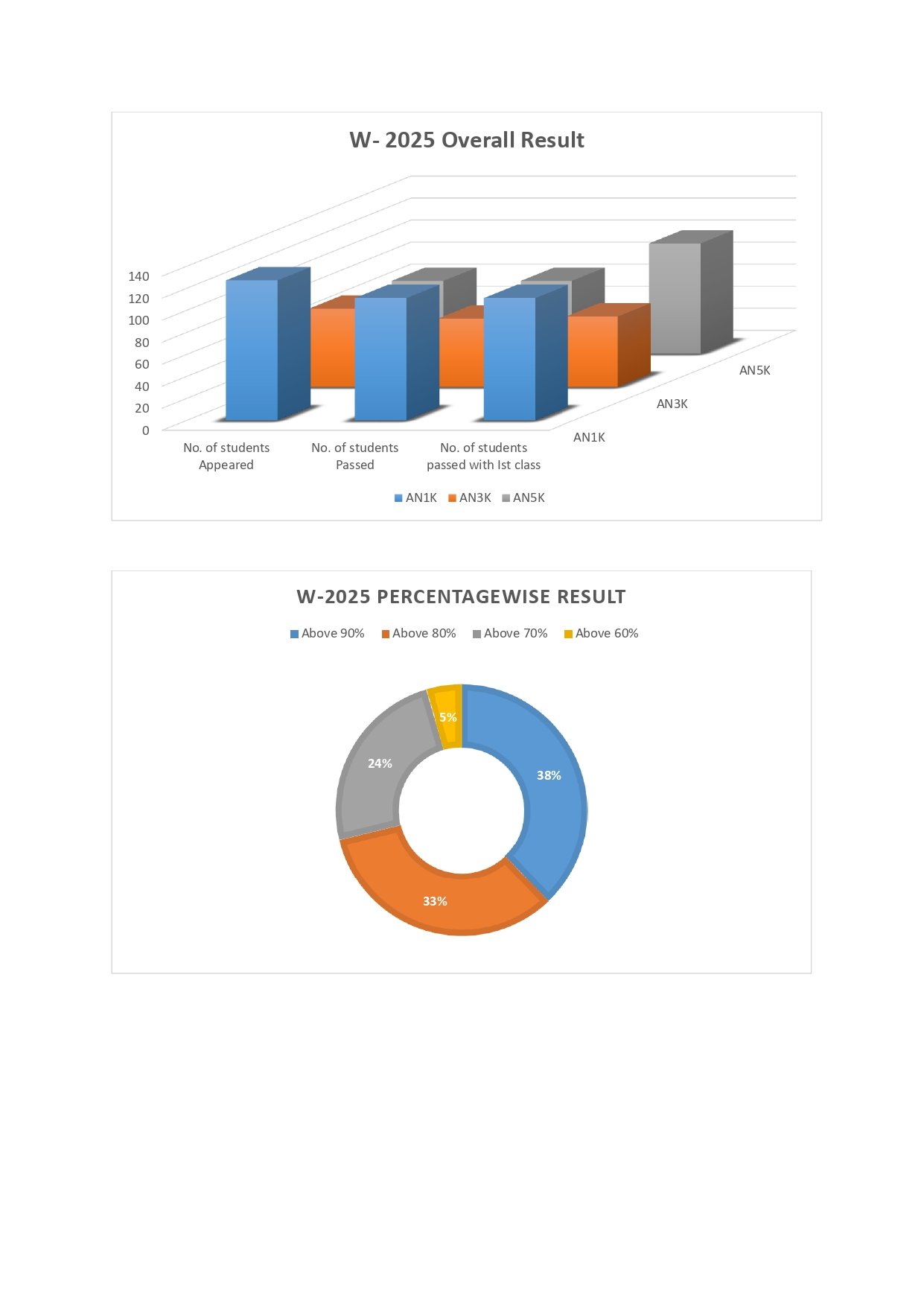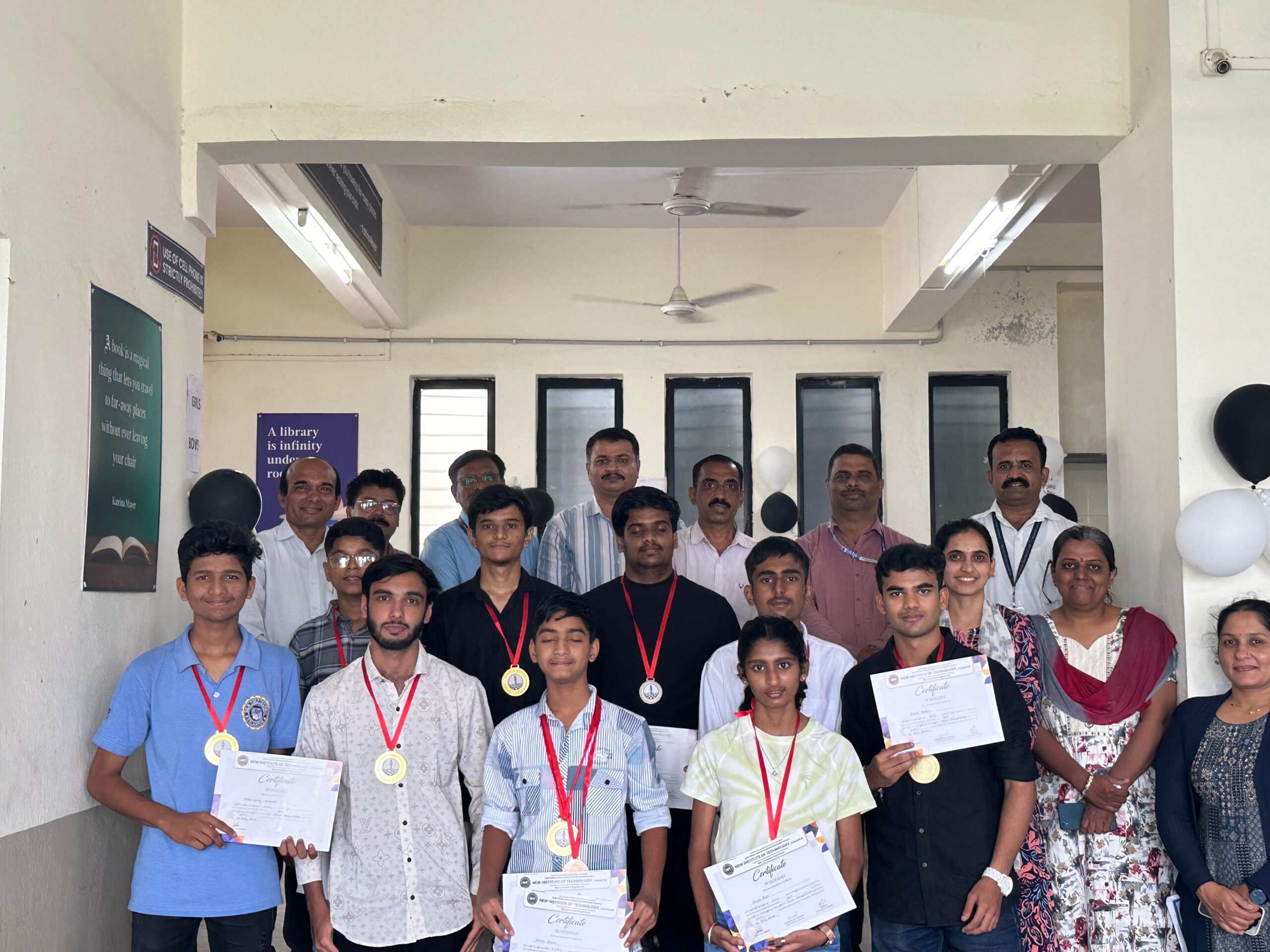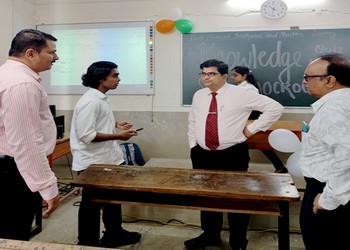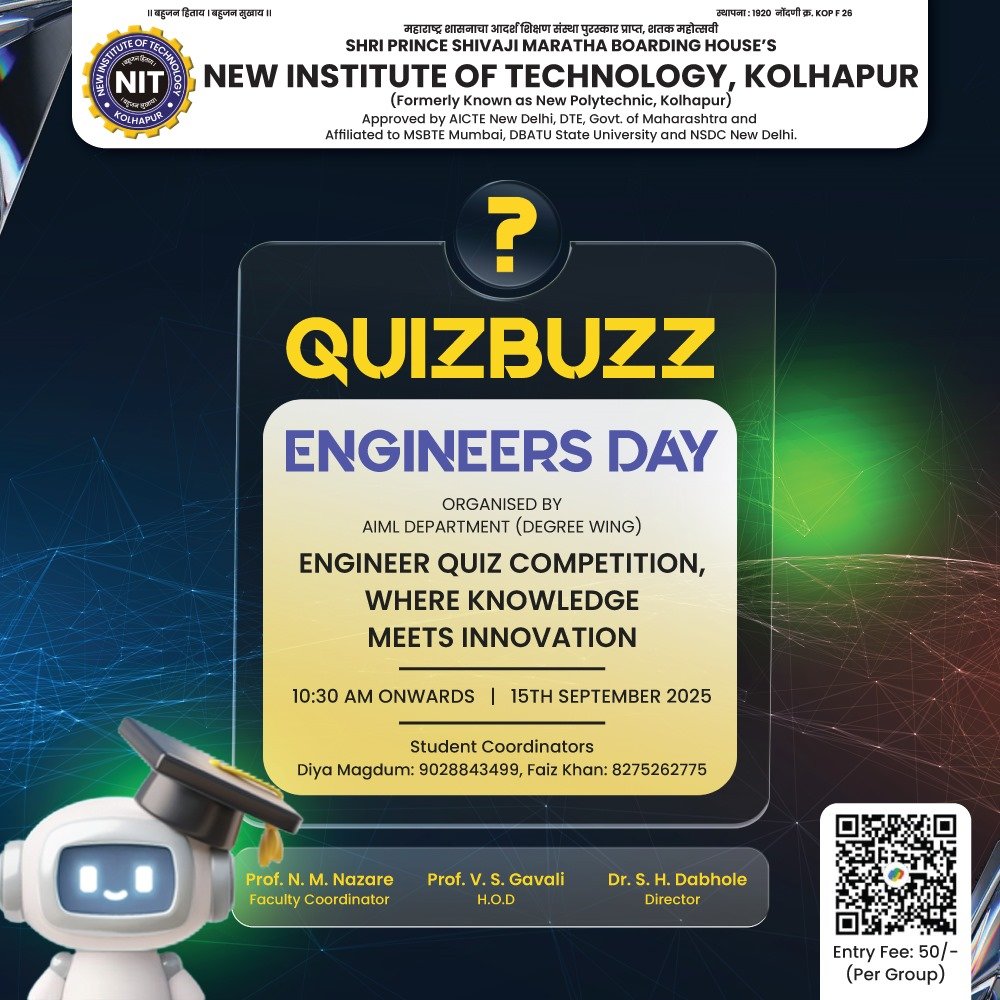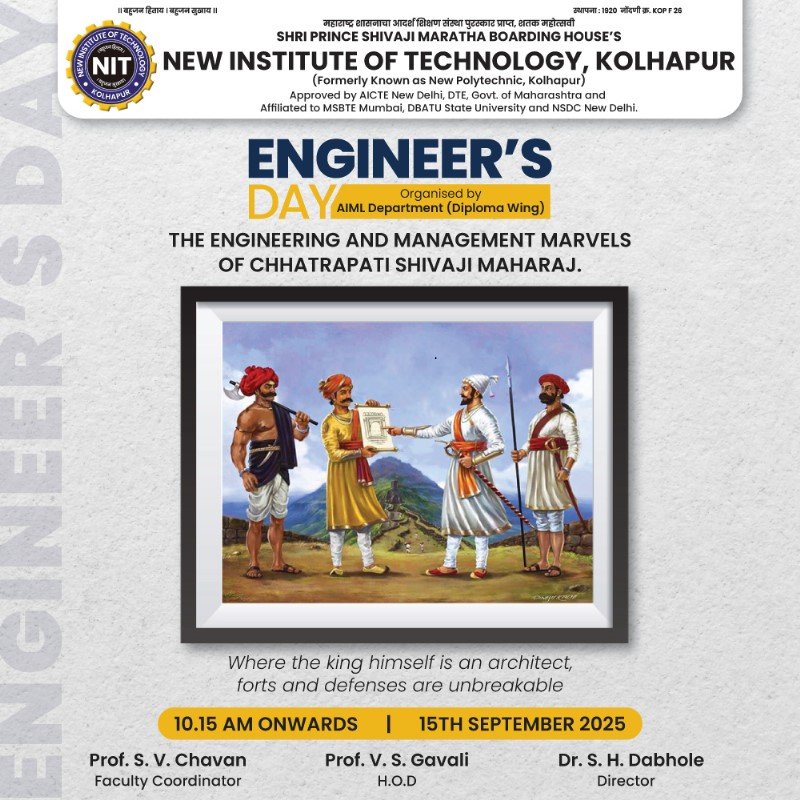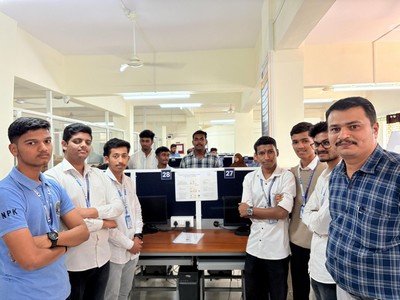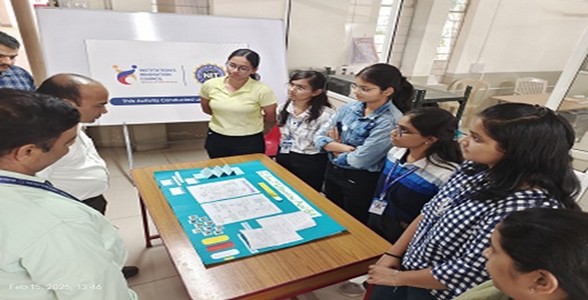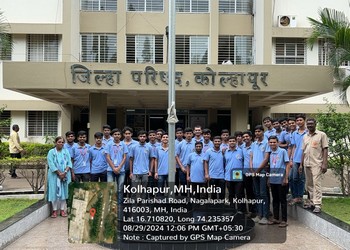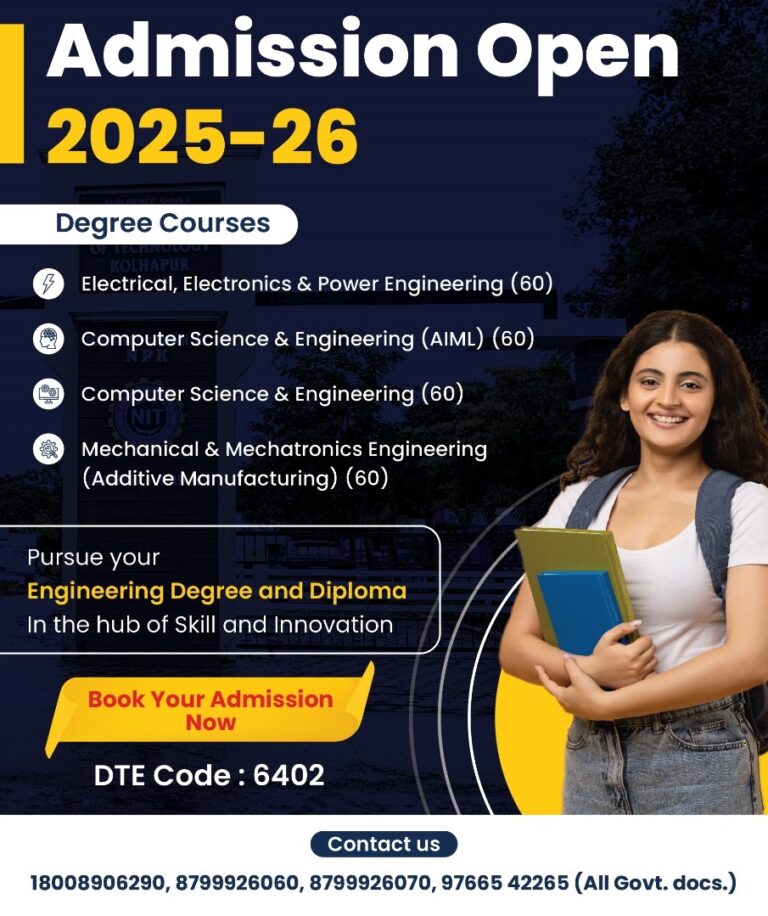Department of Artificial Intelligence and Machine Learning
(AIML )(AN)
Unlock Potential of A.I
Offered Programme and Certification:
B. Tech
Computer Science and Engineering
(Artificial Intelligence and Machine learning)
Duration:
- 4 Year (After-12th)
- 3 Years (After Diploma or equivalent)
Eligibility:
- Eligibility: 12th(CET/JEE) pass for 4 years Programme
- Diploma Engineering in any stream or equivalent pass for 3 Years Programme
Programme Approved By : AICTE, DTE and BATU
Seats : 60/-
Diploma
Artificial Intelligence and Machine Learning
Duration:
- 3 Year (After-10th)
- 2 Years (After 12th Science or equivalent)
Eligibility:
- Eligibility: 10th pass for 3 years Programme
- 12th Science with PCM group or equivalent
Programme Approved By : AICTE, DTE and MSBTE
Seats : 60/-
The scope of artificial intelligence (AI) and machine learning (ML) programs is vast and expanding rapidly. AI and ML are transforming numerous industries and sectors, including healthcare, finance, manufacturing, retail, transportation, and more. Here are some key areas where AI and ML programs are making significant advancements:
Professional Scope of AIML
Natural Language Processing (NLP): AI and ML are being used to develop systems that can understand and process human language, enabling applications such as voice assistants, chatbots, and language translation tools.
Computer Vision: AI and ML techniques are utilized to analyze and interpret visual information from images and videos. This has led to the development of applications such as facial recognition, object detection, autonomous vehicles, and medical image analysis.
Recommendation Systems: AI and ML algorithms are used to analyze user preferences and behavior to provide personalized recommendations. This is commonly seen in platforms like Netflix, Amazon, and Spotify, where content and product recommendations are tailored to individual users.
Healthcare: AI and ML are revolutionizing healthcare by improving diagnostics, personalized medicine, drug discovery, and treatment planning. These technologies can analyze large amounts of medical data, identify patterns, and assist in disease diagnosis and prediction.
Finance and Banking: AI and ML techniques are employed in fraud detection, algorithmic trading, credit scoring, risk assessment, and customer service automation. These applications help financial institutions make data-driven decisions and improve efficiency.
Autonomous Systems: AI and ML are fundamental in developing autonomous systems such as self-driving cars, drones, and robots. These technologies enable machines to perceive and interact with the environment, making independent decisions and performing complex tasks.
Predictive Analytics: AI and ML models can analyze historical data to identify patterns and make predictions. This is used in various fields, including sales forecasting, demand planning, inventory management, and predictive maintenance.
Industrial Automation: AI and ML algorithms are used to optimize manufacturing processes, monitor equipment health, and improve productivity. This leads to reduced costs, increased efficiency, and enhanced quality control.
Education: AI and ML can personalize learning experiences, adapt content to individual student needs, and provide intelligent tutoring systems. These technologies have the potential to transform education by making it more engaging and effective.
Cybersecurity: AI and ML are employed in threat detection, anomaly detection, and security analytics to identify and respond to cybersecurity threats in real time. These technologies can enhance the protection of sensitive data and systems.
About AI and Machine Learning Diploma Programme
- AI is a branch of Science and assists machines to find solutions to complex problems in a more human-like fashion.
- Artificial Intelligence is the future of Next-Generation Technology.
- It encompasses a variety of disciplines like Medical, Finance, and Engineering.

Artificial intelligence (AI) broadly refers to any human-like behaviour displayed by a machine or system. In AI’s most basic form, computers are programmed to “mimic” human behaviour using extensive data from past examples of similar behaviour. This can range from recognizing differences between a cat and a bird to performing complex activities in a manufacturing facility. Whether you are talking about deep learning, strategic thinking, or another species of AI, the foundation of its use is in situations that require lightning-fast responses. With AI, machines can work efficiently and analyze vast amounts of data in the blink of an eye. Artificial intelligence can be a very powerful tool for both large corporations generating significant data and small organizations that need to process their calls with customers more effectively. AI can streamline business processes, complete tasks faster, eliminate human error, and much more.
Before 1949, computers could execute commands, but they could not remember what they did as they were not able to store these commands. In 1950, Alan Turing discussed how to build intelligent machines and test this intelligence in his paper “Computing Machinery and Intelligence.” Five years later, the first AI program was presented at the Dartmouth Summer Research Project on Artificial Intelligence (DSPRAI). This event catalyzed AI research for the next few decades.
Computers became faster, cheaper, and more accessible between 1957 and 1974. Machine learning algorithms improved and, in 1970, one of the hosts of DSPRAI told Life Magazine that there would be a machine with the general intelligence of an average human being in three to eight years. Despite their success, computers’ inability to efficiently store or quickly process information created obstacles in the pursuit of artificial intelligence for the next ten years.

A brief history of Artificial Intelligence
AI was revived in the 1980’s with the expansion of the algorithmic toolkit and more dedicated funds. John Hopefield and David Rumelhart introduced “deep learning” techniques that allowed computers to learn through experience. Edward Feigenbaum introduced “expert systems” that mimicked human decision-making. Despite a lack of government funding and public hype, AI thrived and many landmark goals were achieved in the next two decades. In 1997, reigning chess World Champion and Grandmaster Gary Kasparov was defeated by IBM’s Deep Blue, a chess-playing computer program. The same year, speech recognition software developed by Dragon Systems was implemented on Windows. Cynthia Breazeal also developed Kismet, a robot that could recognize and display emotions.
In 2016, Google’s AlphaGo program beat Go master Lee Se-dol and in 2017, Libratus, a poker-playing supercomputer beat the best human players.
The arrangement, Maint-Aid fixture for Tractor, Weed Remover, Regenerative Braking System, Water Injection for diesel engine, fuel cell car prototype, Petrol injection for motorcycle etc. These projects have won many state-level prizes and are appreciated nationally and internationally too

Artificial intelligence (AI) is presently one of the hottest buzzwords in tech and with good reason. The last few years have seen several innovations and advancements that have previously been solely in the kingdom of science fiction slowly transform into reality. The department of AIML is established in 2022. It is powerfully committed to impart advanced and quality technical education through high standards at diploma level. The faculty and non-teaching staff of the department is dedicated to prepare our students by providing the expertise and proficiency in Artificial Intelligence, Machine Learning, Deep Learning and its related fields needed to succeed in our modern society. The main objective of the Department is to offer experiential learning opportunities such as hands-on training, project-based developments, exploration projects, and internships which deliver a solid foundation to work in interdisciplinary groups that invent the future. Students will be exposed to various multidisciplinary holistic development activities which will help them to develop Knowledge and skill as ethical professional. This program is best suited for students looking to build worldclass expertise in Artificial Intelligence and Machine Learning and emerging technologies which support to stand apart in the crowd and grow careers in the upcoming technological era in various sectors like Healthcare, Education, Finance, Agriculture, Manufacturing etc.
Best Regards,
Mr. Vikram S. Gavali
HOD, AIML
To be the renowned department for education in Artificial Intelligence and Machine Learning in Maharashtra state moulding students into professional engineers.
- To impart knowledge in cutting-edge Artificial Intelligence technologies on par with industrial standards.
- To collaborate with industry to uplift innovative research and development in Artificial Intelligence and Machine Learning and its allied fields to serve the needs of society.
- To produce successful Computer Science and Engineering graduates with a specialization in AI/ML with personal and professional responsibilities and commitment to lifelong learning.
15+ Years Experienced Teaching Faculty

HOD, Asst. Professor
Vikram Gavali

Professor
Dr. A. K. Mangore

Asso. Professor
Dr. Asmita A Desai

Asso. Professor
Sudhir Desai

Asst. Professor
S. V. Chavan

Lab Assistant/Network Administrator
K. R. Patil

Lab Assistant
S. S. Patil
State-of-the-art laboratories driving innovation and excellence
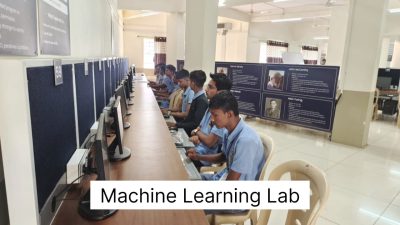
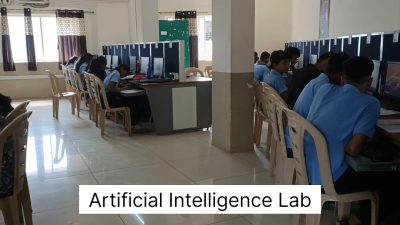

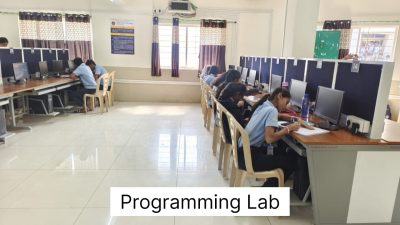
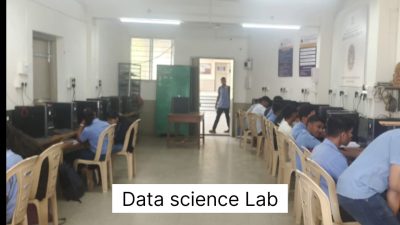
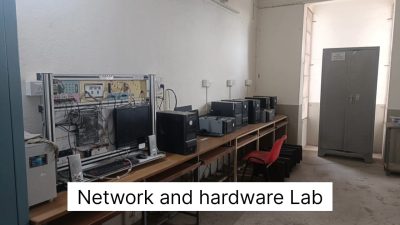




Photo Gallery
